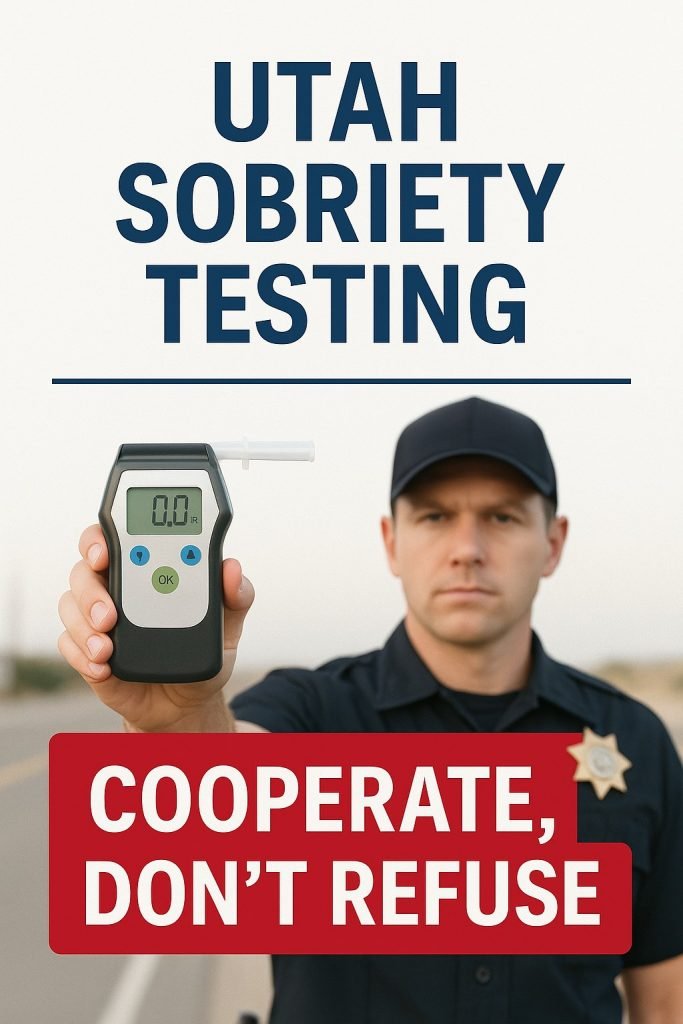
Introduction
When a driver is suspected of being under the influence of alcohol or drugs in Utah, law enforcement officers may conduct sobriety testing. These tests help determine if the driver is impaired and whether further chemical testing (breath, blood, or urine) is required. Knowing the rules, your rights, and the proper behavior during these encounters is important for every driver.
Rules in Utah
-
Implied Consent Law: By driving in Utah, you automatically consent to chemical testing if lawfully arrested for DUI. Refusing a test leads to automatic license suspension (18 months for first refusal, 36 months for repeat refusal).
-
Field Sobriety Tests (FSTs): Officers may ask drivers to perform standardized roadside tests, such as:
-
Horizontal Gaze Nystagmus (eye movement test)
-
Walk-and-Turn test
-
One-Leg Stand test
-
-
Preliminary Breath Test (PBT): Officers may use a handheld breathalyzer before making an arrest decision.
Do’s
-
Stay Calm and Respectful: Cooperate politely with the officer.
-
Provide License, Registration, and Insurance: Always required upon request.
-
Follow Instructions Carefully: If asked to perform field sobriety tests, listen and try your best.
-
Take Chemical Tests if Arrested: Refusing may bring harsher penalties than failing.
Don’ts
-
Don’t Argue or Resist: Disrespectful behavior can escalate the situation.
-
Don’t Lie: Dishonesty can worsen legal consequences.
-
Don’t Refuse a Chemical Test: Refusal results in automatic suspension and may be used against you in court.
-
Don’t Self-Incriminate: Answer required questions, but you don’t have to volunteer unnecessary information.
Takeaway
Sobriety testing in Utah is taken very seriously. The safest choice is always to avoid driving if you’ve been drinking or using drugs. If stopped, remain respectful, follow the law, and remember that cooperation is better than refusal.
